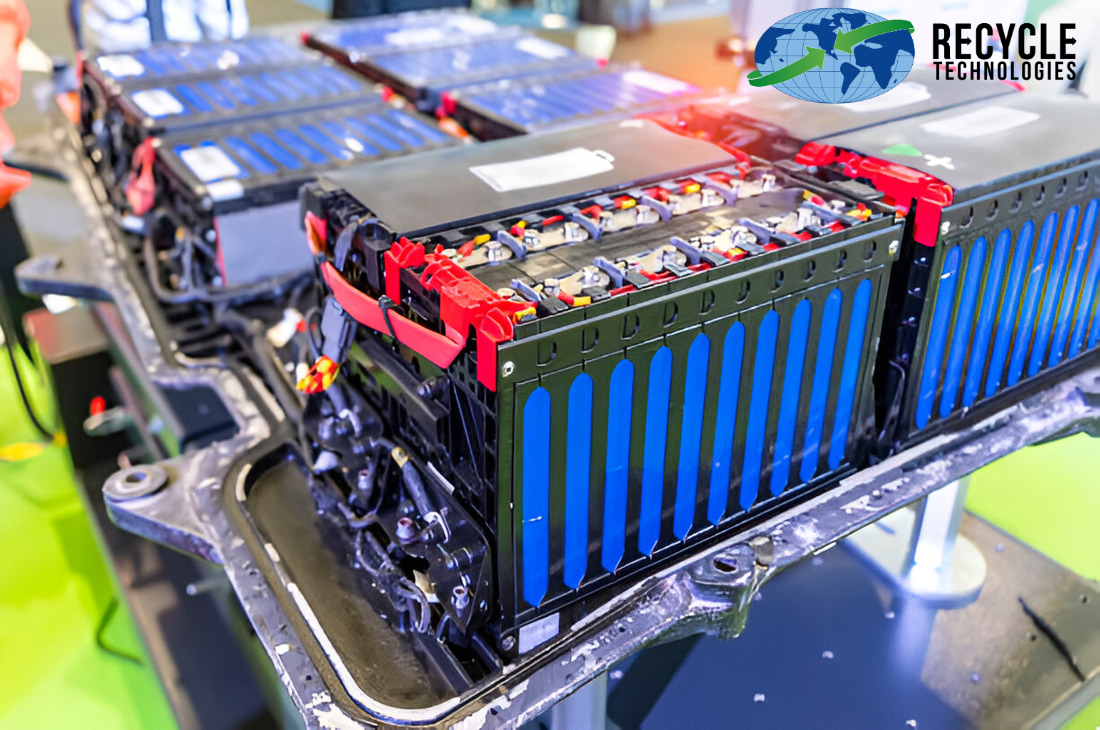Achieving a sustainable battery recycling future is no easy feat and certainly won't happen overnight. Several key factors are essential in propelling our collective efforts forward. Elements like cobalt and lithium are crucial for various electronics industries, including electric vehicles (EVs), lithium-ion batteries, and renewable energy storage systems.
At Recycle Technologies, our main strategy against battery waste involves building a relationship of trust with our customers. We provide secure drop-off facilities for household items containing batteries and offer a mail-in recycling service for businesses nationwide. These efforts prevent electronic waste and batteries from ending up in landfills and incinerators, a significant step towards our sustainability goals.
The Role of Cobalt and Lithium in Batteries
Cobalt and lithium are vital components in modern batteries. Cobalt, which was mainly used in dyes and paints until the late 20th century, now has half of its global production dedicated to battery manufacturing. It is a key ingredient in fast-charging, long-lasting batteries, particularly in lithium-nickel-manganese-cobalt-oxide (NMC) batteries, commonly used in electric vehicles.
Cobalt's role in lithium-ion batteries is to enhance stability, energy density, and overall performance. Electric vehicle manufacturers rely heavily on cobalt-rich battery chemistries. The demand for cobalt is expected to triple from 140,000 tons in 2020 to over 300,000 tons by 2030.
Lithium, another essential element, contributes to making batteries lightweight and long-lasting. From laptops and cell phones to hybrids and electric cars, lithium-ion batteries dominate our technological landscape. Global lithium demand is projected to grow from 332,000 metric tons in 2022-23 to over 1 million metric tons by 2030. These batteries are crucial for capturing and storing excess energy, ensuring a consistent and reliable power supply even when renewable sources are not generating electricity.
However, the widespread use of these batteries also results in significant amounts of discarded cobalt and lithium batteries ending up in landfills annually. While it is possible to recycle these batteries and reuse the elements, current practices often fall short of this potential.
Battery Recycling: A Necessity for Sustainability
The importance of recycling cobalt and lithium cannot be overstated. These materials are not only valuable but also hazardous if not disposed of properly. Recycling helps prevent the release of toxic substances into the environment and conserves natural resources.
Lithium is mined using a process called brine mining, which involves extracting the metal from underground saltwater reserves. This process can potentially pollute groundwater, posing risks to humans and animals. Cobalt mining, predominantly carried out in the Democratic Republic of the Congo (DRC), is labor-intensive and often involves artisanal mining practices. The conditions in these mines have raised significant ethical and environmental concerns.
Future-Proofing Recycling Efforts
Addressing these challenges requires a multi-faceted approach to ensure a sustainable future. This includes responsible extraction of cobalt and lithium and their efficient recycling. Here are some strategies for future-proofing lithium and cobalt recycling efforts:
- Lithium Battery Recycling Programs: Numerous companies and organizations are developing recycling programs for lithium-ion batteries. For instance, Recycle Technologies offers a comprehensive recycling program that collects and processes old batteries, allowing valuable materials like cobalt and lithium to be reused in new battery production.
- Establishing Closed-Loop Systems: In a closed-loop system, materials are recycled and reused within the same industry. Some automotive manufacturers, such as Audi, are pioneering closed-loop systems for battery recycling, creating a circular economy for lithium-ion batteries.
- Advanced Separation Techniques: Innovative separation techniques, such as hydrometallurgical processes, are being explored to recover cobalt and lithium efficiently from batteries. These environmentally friendly methods reduce the need for new mining operations.
- Researching Alternatives: Researchers are investigating alternative materials to reduce reliance on cobalt and lithium. Solid-state batteries, for example, offer the potential to replace traditional lithium-ion batteries and are easier to recycle.
The Future of Battery Recycling
Cobalt and lithium will continue to play a pivotal role in the sustainability of EVs, renewable energy storage, and other emerging technologies. However, the ethical and environmental challenges associated with their extraction and supply chain practices must be addressed to ensure a sustainable future.
By fostering innovation, encouraging collaboration, and considering diverse perspectives, we can reduce our dependence on these elements and adopt more sustainable alternatives and practices. Conscious efforts towards making the recycling process circular are essential for protecting our planet and ensuring a healthier environment for future generations.
If you appreciate our efforts to make battery recycling sustainable, visit our website to stay updated on our initiatives and the tangible methods we employ to bridge the gap between waste and sustainability.









